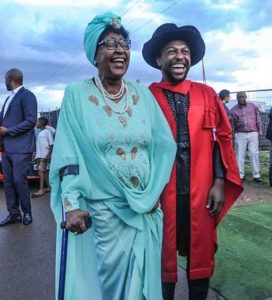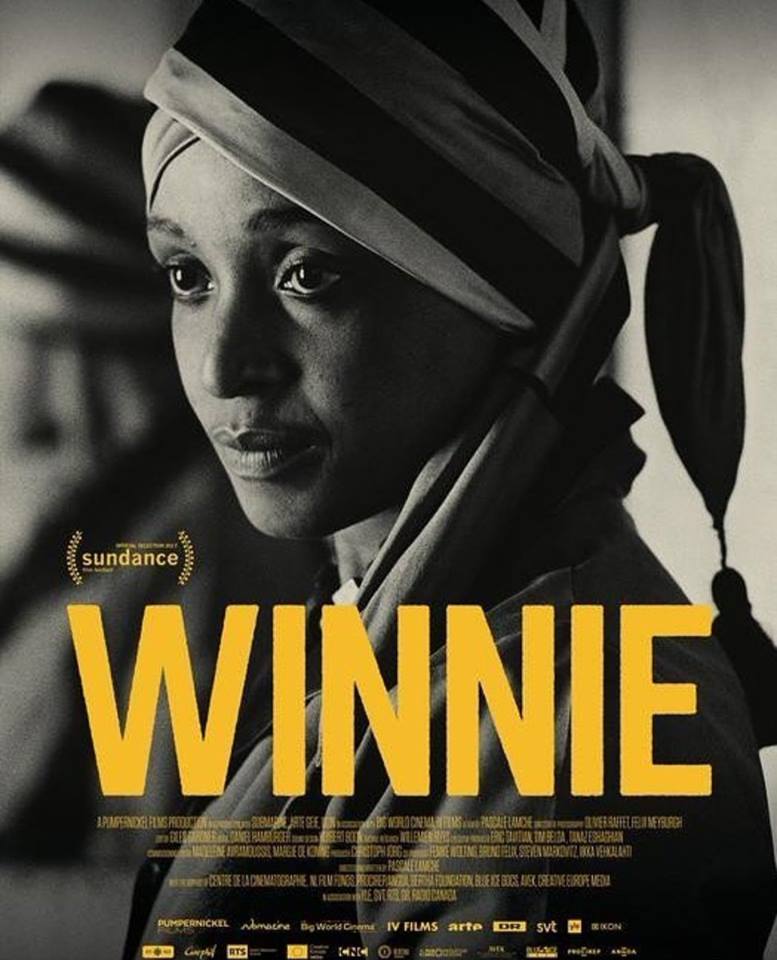
‘Mama Winnie Mandela is the stone that the builders rejected. She is the first black female president South Africa was deprived of. Her irreplaceable contribution to the liberation of our people was a subject of both Patriarchal and white minority suppression… They hated her because she was a black woman with her own mind and who enjoyed the collective popular confidence of masses of our people. They hated her because she never compromised her message of radical black emancipation.’ Thus read the emotional, revolutionary and powerful tribute by the Economic Freedom Fighters, to the mother of the South African liberation, an African Icon.
Winnie Mandela has rested. Although our hearts are broken, today we celebrate the life of an African heroine. When we say we give thanks, we say it with the knowledge that we could have done more. We could have recognized, if not her personally, but some of her ideas on how the post-apartheid South Africa was to be shaped
Other than those who died in the struggle, Mama Winnie is perhaps the one person whom, having been at the forefront of a liberation movement, never had an opportunity to rejoice and enjoy the fruits of its victory.
The passing of Mama Winnie inevitably revive the discussion on the choices made by Mr. Nelson Mandela, her ex-husband, personally and about the discourse that post-apartheid South Africa should have taken.
We the young Africans should not shy away from questioning the choices made by those who came before us, after all, those choices are affecting our lives today. We should not fear to say that some of our past leaders were wrong, for that is the first step towards freeing ourselves from their legacy and begining to build our own.
African matters are for Africans. No foreigners should chose heroes for us, reward African heroes on our behalf and bully us to not question our own fathers and grandfathers’ deeds, especially when the leaders we chose for ourselves and appreciate today are criticized by them.
Mr. Nelson Mandela did what he had to do. Whatever we say about him today, we must understand that his time is done and it is ours now. Ours coincide more with the dreams Mam’ Winnie had, and my hope for South Africa is that it looks less and less as Mr. Mandela wanted it and more and more as Mum’ Winnie did. If Mr. Mandela’s death was the end of an era, Mam’ Winnie’s is the beginning of a brand new one.
The shift has started, until recently, it was sacrilegious to dare question any of the past decisions by Mr. Nelson Mandela. Last month, on the 28th February 2018, the South African Parliament passed, with 241 votes in favor and 83 against, a motion to expropriate land without compensation in South Africa.
This parliamentary motion was sponsored by 36 year old Julius Sello Malema, the Chairman of the Economic Freedom Fighters (EFF), a party created on 27th July 2013, in Orlando West, Soweto, a popular black township, home of Mam’ Winnie Madikizela until her death.
If I am sharing all these details, it is because I want to take you with me on a journey to South African youth’s iconoclasm, a gradual breakaway with nominal freedom and the advent of true South African emancipation.
Although youngsters of the EFF saw Winnie Mandela as their spiritual leader, they were tactful enough to respect her legacy and not ask her to join the youth revolutionary party: ‘She fought for the ANC and she will die in the ANC.’ – its leader Julius Malema is quoted as saying.
Mam’ Winnie played a motherly figure to them and she died a proud mother. In a recent picture she is seen delighted, addressing crowds, when the youngest member of the Economic Freedom Fighters in Parliament and the party’s national spokesperson, 32 year old Mbuyiseni Ndlozi received his Doctoral Degree from the University of the Witwatersrand, South Africa.
The EFF may never access power, at least not yet. But its impact as a youthful, uncompromising party in South African polity has pushed the envelope and shaken Mr. Mandela’s African National Congress (ANC)’s old guard out of their comfort zone, and initiated irreversible reforms towards total black emancipation in South Africa. In that regard, Mama Winnie died with a smile on her face, and although the jury is still out in South Africa, she may have had the last word.
To quote a Rwandan elder whom I spoke to in the morning: ‘An era has truly passed. And Winnie Makidizela can go forth into the never-ending world with the following words truly accompanying her: – “I have fought the good fight, I have finished the race, I have kept the faith.” 2 Timothy 4-7.
May the soft soil of the country she fought so valiantly to liberate from the Boer rest softly on her earthly body.”
And in Xhosa, her mother tongue: Hamba kahle Mam’ Nomzamo Winifred Zanyiwe Madikizela, ulale ngoxolo Qhawekazi. Imisebenzi yakho ayisoze ilibaleke (Go well Mama Nomzamo Winifred Zanyiwe Madikizela, rest in peace heroine. Your work will never be forgotten)















Love this piece rest in peace Mama Madikizera